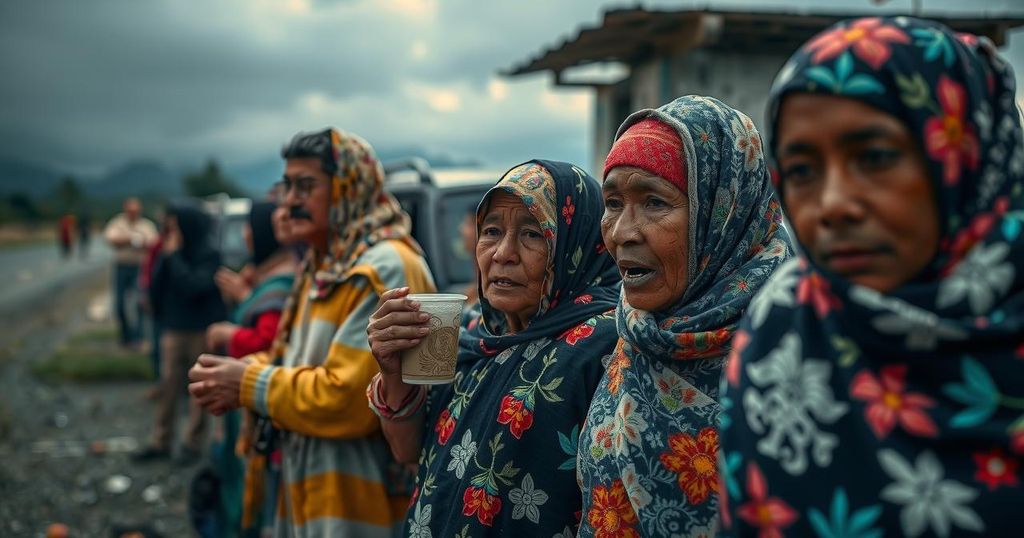The UNHCR has warned that half of the 120 million displaced people globally are at risk from climate change and conflict. The number of countries experiencing severe climate risks is predicted to rise dramatically by 2040. The report calls for increased climate adaptation funding and emphasizes the need for refugees and host communities to be involved in policy discussions. Without urgent action, these populations may remain ensnared in precarious conditions.
The United Nations High Commissioner for Refugees (UNHCR) issued a stark warning regarding the plight of forcibly displaced individuals amidst escalating climate crises. With more than 120 million people displaced globally, approximately half reside in regions profoundly affected by both conflict and climate-induced hazards. A recent report detailed that by 2040, the number of countries grappling with severe climate-related dangers is projected to surge from three to 65. Refugee settlements are also expected to experience significantly increased days of extreme heat by 2050, exacerbating the vulnerabilities faced by these populations. The UNHCR emphasized the urgent need for enhanced climate financing, which has largely failed to reach the most affected groups. Alarmingly, an average of only $2 annually is allocated for climate adaptation per individual in highly fragile states, compared to $161 for those in stable regions. Furthermore, the report underscored the necessity for governments to incorporate the perspectives of displaced individuals and the communities that shelter them into climate and policy discussions. Failure to act could leave these vulnerable populations in situations where they are trapped between conflict and a deteriorating environment.
The warning from the UNHCR highlights the intertwining crises of displacement due to conflict and climate change, drawing attention to countries like Ethiopia, Haiti, Myanmar, Somalia, Sudan, and Syria. These regions face compounded difficulties as individuals flee violence only to face natural disasters and extreme weather conditions. The report serves as a call to action for the international community to increase financial resources directed toward climate adaptation, especially in regions that have been historically neglected in such funding efforts. The urgency of the situation is amplified by statistics indicating that extreme climate-related hazards will escalate significantly in the coming years, demanding immediate and effective responses from both governments and international organizations.
In summary, the UNHCR report underscores the dire circumstances faced by a significant portion of the world’s displaced populations who are caught in the crosshairs of conflict and climate crises. There is an urgent requirement for increased climate funding and the active inclusion of displaced individuals in policy-making to effectively address their needs and rights. Without these critical interventions, these vulnerable communities face a precarious future, fraught with uncertainty and danger.
Original Source: www.aa.com.tr






